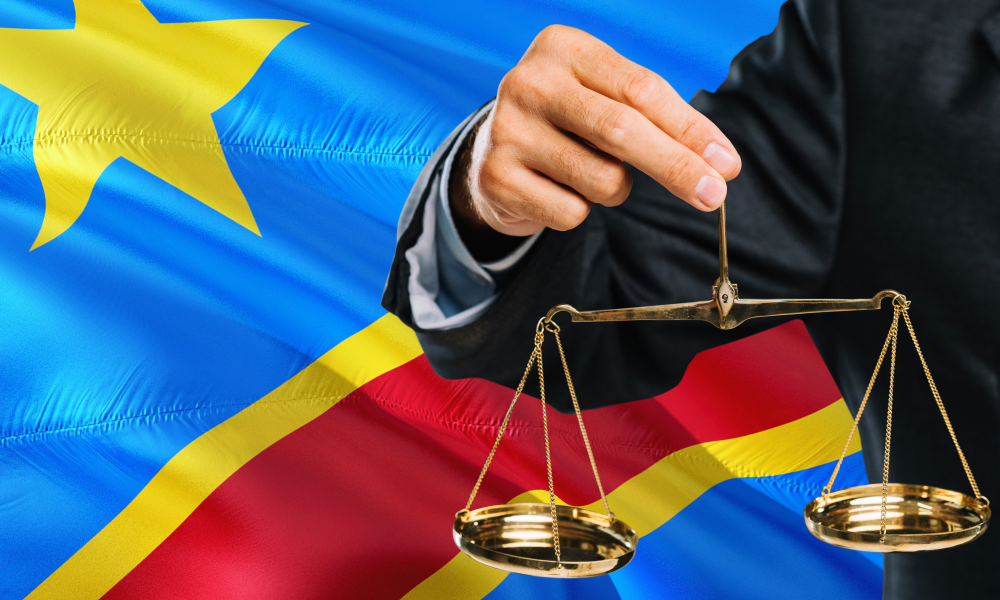
International Bar Association committee member and others discuss research before UK Parliament

The International Bar Association’s Human Rights Institute (IBAHRI) and the All-Party Parliamentary Group on International Law, Justice, and Accountability (APPG) have released a report on responses to conflict-related sexual violence (CRSV) in the Democratic Republic of the Congo (DRC).
The IBA’s news release noted that the war in the DRC has lasted for over three decades. Per the United Nations (UN), the DRC has seen over 113,000 recorded sexual violence cases in 2023, with this figure reportedly doubling in 2024.
“Women and girls have paid and continue to pay a very high price in this forgotten war and neglected crisis,” wrote Dr. Denis Mukwege – gynaecologist, human rights activist, and Nobel Peace Prize laureate from east Congo – in the report.
“The systematic recourse to rape and gender-based violence, including sexual slavery and forced pregnancy, used by all combatant forces – Congolese and foreign armies or armed groups – has been characterised by the widespread and systematic nature of these most heinous crimes,” Mukwege added in the report.
“Some are forced to marry their rapists,” said Sara Elizabeth Dill, partner at Anethum Global and co-vice chair of the IBA War Crimes Committee, in the news release. “Children as young as three have suffered these atrocities.”
The new report suggested that the UK government combat CRSV in the DRC by:
On June 19, a day marking the UN International Day for the Elimination of Sexual Violence in Conflict, the UK Houses of Parliament in London and a panel of authorities participated in a session called “Conflict-related Sexual Violence, Conflict Minerals, and Child Labour in the Democratic Republic of the Congo” to discuss the new report.
Lord David Alton of Liverpool chaired the discussion addressing the interrelated subjects, featuring insights by Dill; Brendan O’Hara, member of the UK Parliament and chair of the APPG; and Mark Preston and Carl Beech, co-founders of the Freedom and Justice Partnership.
Dill urged the UK to adopt holistic peacebuilding measures, with women at the table for peace processes, post-conflict rebuilding, and transitional justice. She also wanted the European and African Unions to develop a joint initiative supporting the DRC in fully implementing reparation laws.
Dill called for funding to help ensure accountability and the formation of task forces that build relationships among police, judges, and victim-survivor advocates. She suggested seizing the assets of those responsible for use in reparation.
Dill also addressed the following in her discussion:
“Conflict related sexual violence is a weapon of choice,” O’Hara said in the news release. “Not only does it break a victim, it breaks a family, it breaks a community and, all too often, it breaks a community for generations to come.”
“Justice must be real, focused and visible for survivors,” Dill said in the news release. “We cannot wait for the next atrocity or lengthy justice process. Even if convictions are achieved, the trauma remains. Let us act firmly, humanely, and without delay. Let us ensure that the survivors of Congo are never again forgotten or abandoned.”
According to O’Hara, given that violence in the DRC surrounds the mining industry, targeting the mining industries and Western mining corporations would help reduce CRSV.
According to Preston, the DRC accounts for over 70 percent of the globe’s cobalt extraction, with 20 percent mined through so-called “artisanal mining,” which means that 40,000 children are being exploited in poor conditions.
Beech called the scenes in the mines “Dante’s inferno, without the fire,” with many children without homes and identities struggling to earn enough to feed themselves. Beech said some children collapsed or developed lung diseases or rare cancers because of exposure to toxins.
“This hell on rare earth is, in short, a vacuum,” Preston said in the news release. “And in that vacuum, we must acknowledge the uncomfortable reality that current corporate frameworks and international policies are at best performative and at worst complicit.”
In the IBA’s news release, Beech recommended measures to:
The APPG, a cross-party group in the UK Parliament, focuses on applying international law standards to ensure justice and accountability for international crimes. The IBAHRI provides a secretariat to the APPG, with IBAHRI Director Baroness Helena Kennedy acting as vice chair.